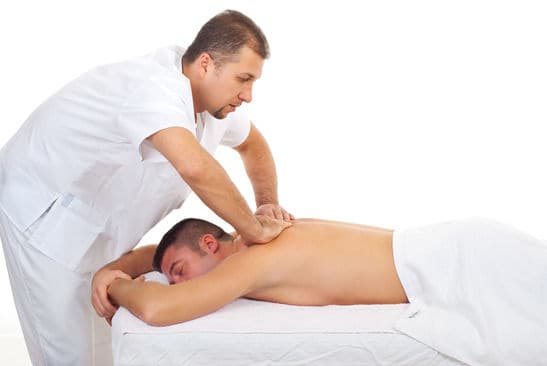

Regardless of how far we think our society has come in overcoming sexual discrimination, massage therapy professionals know otherwise. Not only are men a clear minority in this business, they also may have a harder time booking legitimate bodywork appointments. This inequity between the sexes may discourage some males from pursuing a livelihood in massage therapy. However, those with drive can take several steps to prevail over the public’s gender bias and enjoy a successful, rewarding career.
The Blazing Disproportion
According to The American Association of Massage Therapy, over 80 percent of massage therapists are female. Even though this statistic may create the illusion that male massage therapists are in higher demand, many people prefer receiving treatment from female bodyworkers. Whether a therapist is hoping to find employment or attract new clientele, these facts point to discrimination against male bodyworkers.
Undeniably, day spas, destination spas and resort spas typically experience a majority of their clients preferring female practitioners. Upon booking an appointment within the burgeoning spa industry, potential clients are usually asked if they would prefer a male or female massage therapist. Although some may argue that this practice initiates potential discrimination, choosing gender can optimize client comfort – and thus encourage repeat business. The good news is that the more consumers are educated about massage therapy, the more they support gender neutrality. Experts believe this trend is due to the abundance of press educating the public about bodywork’s value as a therapeutic modality.
Preference for Females
While frequent spa-goers recognize that the importance of a practitioner’s skill supersedes a practitioner’s gender, those newer to receiving bodywork tend to prefer female therapists for many reasons. Although not based in logic or fact, the following causes of gender preference are rooted in the psychological web of our popular culture:
- Feeling Safe – People typically feel vulnerable after they disrobe and may believe that a female will be less threatening.
- Judgment – As the most likely sex to seek massage therapy, a woman’s insecurity about her body may harbor fears that a male therapist might judge her physical appearance.
- Sexuality – A result of sex industry ventures masquerading as massage services, many people worry that a massage may be sexualized. This misconception represents a constant battle for massage therapy professionals.
- Homophobia – For men who are uncomfortable with intimacy within their own gender, men may avoid being massaged by men because of their own homophobia. Combined with this fear, the possibility of getting a spontaneous erection during a session with a man may fuel their preference for a female therapist.
- Nurturing – Likely due to their traditional roles in child-rearing, many people assume women to be superior nurturers to men. Individuals who are dealing with emotional issues such as violation, depression or loneliness, are prone to choosing a practitioner most likely to nurture them.
Success Despite These Fears
Although overcoming these misconceptions about men presents an additional hurdle for male therapists, the rewards are well worth it. Some of the most successful and well-known massage therapists in the industry are men who persevered despite the gender bias. Simply being aware of the reasons people might choose a female bodyworker can inspire a creative practitioner to dissipate such preconceived notions. Several approaches that have paid off for male bodyworkers include:
- Stressing Medical Massage – Alternative healthcare practitioners are aware that decades of research demonstrate the clear physical benefits of relaxation practices. However, emphasizing bodywork within a medical framework may attract clients with a specific therapeutic goal instead of those seeking nurturing or relaxation only.
- Stellar Boundary Definition – By communicating extremely clear professional boundaries prior to a session, male bodyworkers can dispel any ambiguity or misconceptions regarding the sexualization of a massage treatment. According to Art Riggs, certified massage therapist and advanced certified Rolfer with over 15 years of teaching experience, “It’s especially important for men to establish boundaries when working with clients because it’s easier for a man to be subject to accusations of sexual harassment, or perceived sexual advances, than a woman. For this reason, men must be particularly careful when working on clients, especially female clients, so as not to be misinterpreted.”
- Educate Spas on Advertising Skills – When marketing yourself, emphasize your skills instead of gender to help potential clients focus on what is important. If working in the spa industry and someone else is booking your appointments, educate the reception staff about this distinction. Ask that potential new clients be informed of the modalities you excel in and the conditions you are most recruited for before discussing gender preference.
Although the scale of gender preference for massage therapists clearly tips toward women, men can still achieve a successful and rewarding career within this industry. Once the psychology behind client requests for female bodyworkers is understood, men can step forward to create change. By focusing on a medical massage model, setting and abiding by the most stringent professional boundaries and educating those around them about their strengths as a bodyworker, dedicated male massage therapists can end this gender bias.
[php]
show_banner_ad(215);
[/php]















